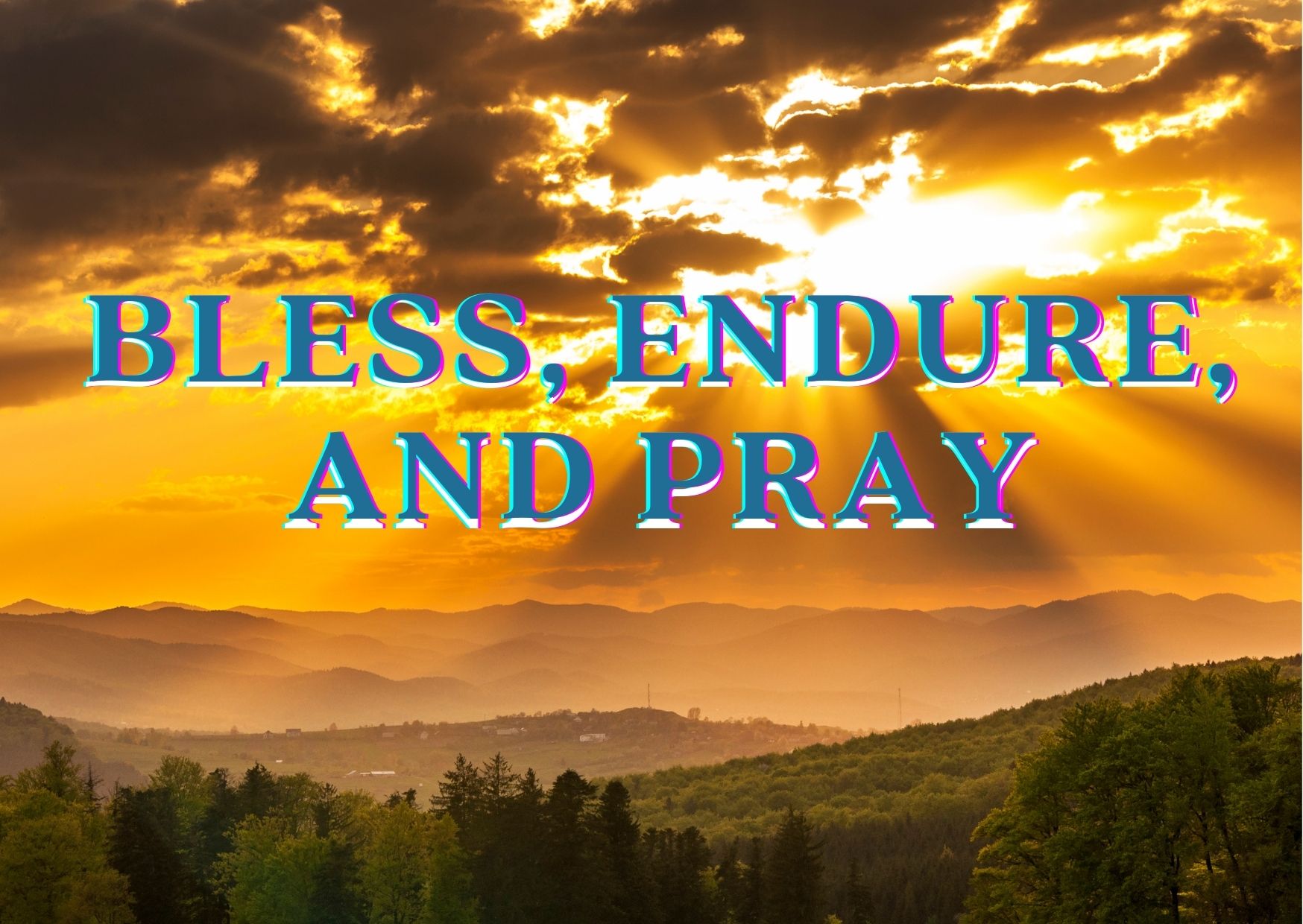Overlook

Overlook
I think we are all a little angrier lately. It is hard to not look around the world and see or even experience the escalation of hot-headed temperaments. Here are some statistics from the last 10 years. In a 2019 survey by AAA, nearly 80 percent of drivers in a 2019 survey had shown significant aggression while driving at least once in the previous 30 days, according to a similar AAA survey. What used to be considered common courtesy on the roads has become a Mad Max free-for-all. Daily videos showcase drivers’ absurdity and reckless natures and habits on every social media site. I’m sure you have felt the rise in anger and aggression in your daily interactions, whether driving or shopping at a grocery store. It is frightening to think about what will happen to us in five years.
Anger is not a new issue for humanity. It is something that God has given to us for us to notice injustice and deal with it appropriately. “Be angry and do not sin; do not let the sun go down on your anger” (Ephesians 4:26). As Paul writes to the church in Ephesus, he doesn’t give them the command to never be angry. God was angry with Israel many times (Num 32:13), and Jesus’s anger was justified in the temple (Matthew 21:12). However, anger in these circumstances was righteous and justified. They both also produced actions that corrected the situation without sinning.
However, today I want to look at two truths displayed in the book of Proverbs. First, it should caution us on how we interact with the world and our course of action with those we encounter.
Proverbs 29:22 “An angry person stirs up conflict, and a hot-tempered person commits many sins.”
Detailed in this verse is something we are all aware of, that an angry person is looking for a fight. They are prone to get into a fight, but they enjoy stirring up the conflict. This is not the kind of anger that has subsided with the setting of the sun. This is an anger that is constantly brewing under the surface. It is not producing any kind of solution, just rage, and malice toward others. This is what I believe we are seeing on the faces and hearts of those around us. This hot temper is looking for trouble that is the cause and root of sin in these people’s lives. We may often think that our anger is not hurting anyone, but it is simmering below the surface, and it is waiting to be unleashed if not confronted or dealt with properly.
Proverbs also gives us good insight on this topic.
Proverbs 19:11 “Good sense makes one slow to anger, and it is his glory to overlook an offense.”
We have to be willing to either let our anger go or find a beneficial way to handle it without turning to a sinful state like hatred or malice. The solution to letting it go is to have “good sense” or understanding. This helps us separate actual injustices and minor inconveniences. It is to our benefit if we choose to overlook these offenses. It is easy to want to retaliate or lash out in frustration. However, the better solution is to address it with understanding. Someone cutting me off in traffic is a minor inconvenience. Human trafficking is a significant injustice. I should be angry at the injustice and let the little stuff go. Keep in mind that if we are angry at something that is truly an injustice, our anger should be channeled to promote action and correct the situation in a godly manner.
This contrasts with someone who wants to follow God’s will and someone who doesn’t. Someone who does not want to place God as the center of their life will want to look for fights and is seeking a way to stir up conflict. However, a Christian will overlook the minor offenses and use their energy for issues that need to be addressed. And may we all pray for wisdom to know the difference and overlook the small stuff.
Bless, Endure, & Pray

Blog 5.16.2022
Bless, Endure and Pray
Anyone married for more than 30 seconds knows that result of two independent people sharing any space together will cause momentary disputes. It is the nature of people; disagreements arise, and it is crucial to work through those conversations in loving and beneficial ways. A fork in the road, which way should you turn? An adjusted couple will discuss the plausibility of each outcome until they can agree upon the direction they will take. It is a process of hearing and listening, giving and taking, and at times compromise. This entire process is sometimes lost on my children. They hear their parents having discussions and perceive them to be outright conflicts. They don’t understand that when ideas are counter to each other, it requires dialogue and understanding. However, children operate on an all or none principle. You are either entirely in agreeance or at insurmountable odds with the other person. This is why kids fight so much; they cannot see an arrangement for compromise or dialogue. If one has a toy and the other wants it, they cannot see the benefit of sharing or taking turns with the toy; it is an all-or-nothing situation.
I see the same childish mentality widespread throughout our culture. Not only are very few people willing to compromise, but very few people will also even come to the table to have a discussion. I believe it is because many of our significant viewpoints are bound too tightly to our sense of identity. If someone disagrees with our statements or beliefs, we feel rejected and despised in their eyes; and we think it must be an all or nothing proposition. We must be approved of, loved, and lauded by all. However, many ideas will be forever unreconcilable, and there is no possibility of compromise. No one will ever fully agree on every point of contention. So, what are we to do when our discussions move in these directions? When two people disagree on significant differences? What happens when things turn ugly and malicious?
As Christians, we have two scriptural passages to guide us in these situations. The first comes as Paul appeals for his readers to listen to the message as he pleads to the church in Corinth.
1 Corinthians 4:10-13
“We are fools for Christ’s sake, but you are wise in Christ. We are weak, but you are strong. You are held in honor, but we in disrepute. 11 To the present hour we hunger and thirst, we are poorly dressed and buffeted and homeless, 12 and we labor, working with our own hands. When reviled, we bless; when persecuted, we endure; 13 when slandered, we entreat. We have become, and are still, like the scum of the world, the refuse of all things.”
Paul wanted the church in Corinth and us to know that we approach everything in regard to Christ no matter what. Whether you are foolish/wise, weak/strong, or honored/dishonored, ensure it is with Christ as our focus and the end to our means. Everything that happens, even in discussions where we are disagreed with, we are to ensure that it is with Jesus as our goal. Even if we are right in our discussions, we maintain the Christ-like behavior of “when reviled, we bless; when persecuted, we endure; when slandered, we entreat.” We don’t really use words like “entreat” anymore; however, the Greek word is παρακαλέω parakaléō, meaning to call near, invite, (be of good) comfort, and finally to pray. The thought is that when we are slandered, we turn around and pray for them; when we are cursed before men, we take our case before God and pray for our enemies. This is the mark of a disciple of Jesus, who “when he was reviled, he did not revile in return; when he suffered, he did not threaten, but continued entrusting himself to him who judges justly” (1 Peter 2:23 ESV).
The second comes from Jesus as he declares the Beatitudes.
Matthew 5:11-12
“Blessed are you when people insult you, persecute you and falsely say all kinds of evil against you because of me. 12 Rejoice and be glad, because great is your reward in heaven, for in the same way they persecuted the prophets who were before you.”
Even though the world may become angry and upset when they are disagreed with or when we conflict with ideologies. Those disputes should not bother us as long as we are standing in fellowship with Jesus. If we are rejected or even persecuted, for Christ’s sake, it is a blessing and a moment of rejoicing. The most important thing is not winning an argument but standing with and in Christ. This does not mean we seek out conflict to receive this blessing; however, these passages give us the strength to stand up to pressures when we stand opposed to the culture around us. This doesn’t mean we remain silent or satisfy the world’s ideas; we should stand up for our beliefs because it is not about us but Christ. The best way to do this is to Bless, Endure and Pray for those who disagree with us.